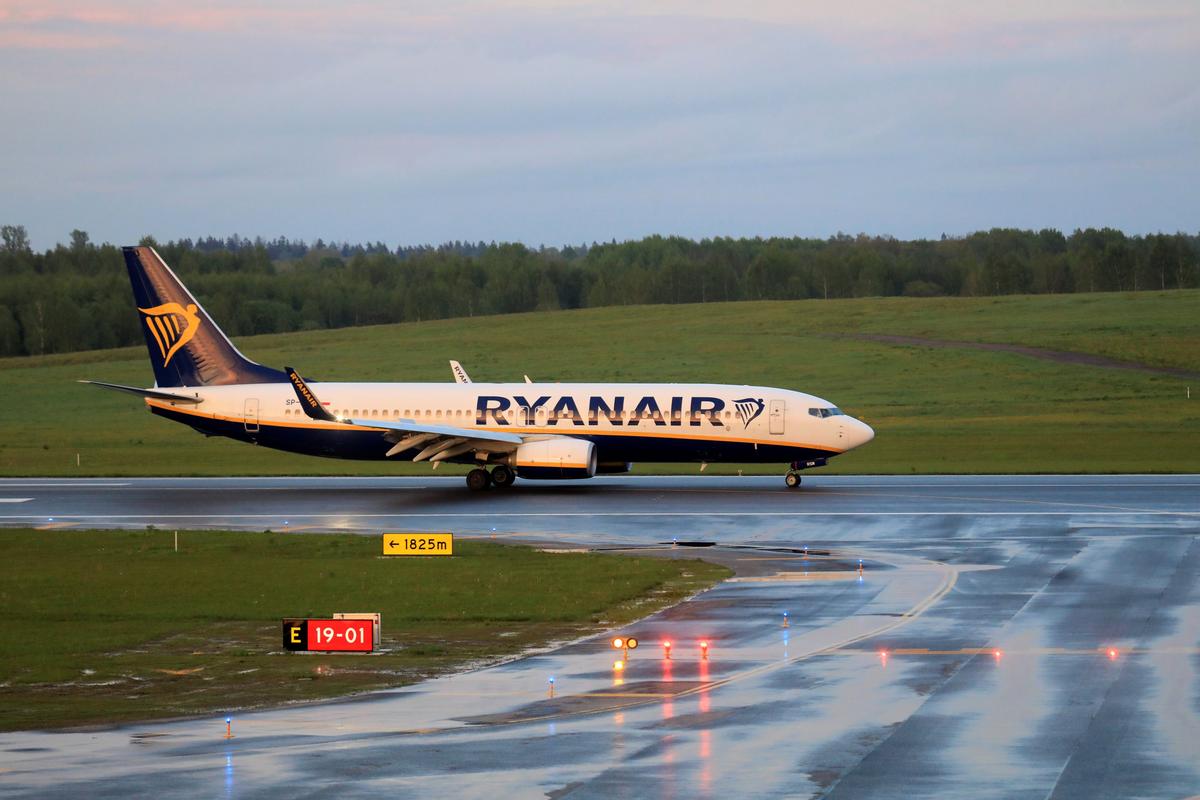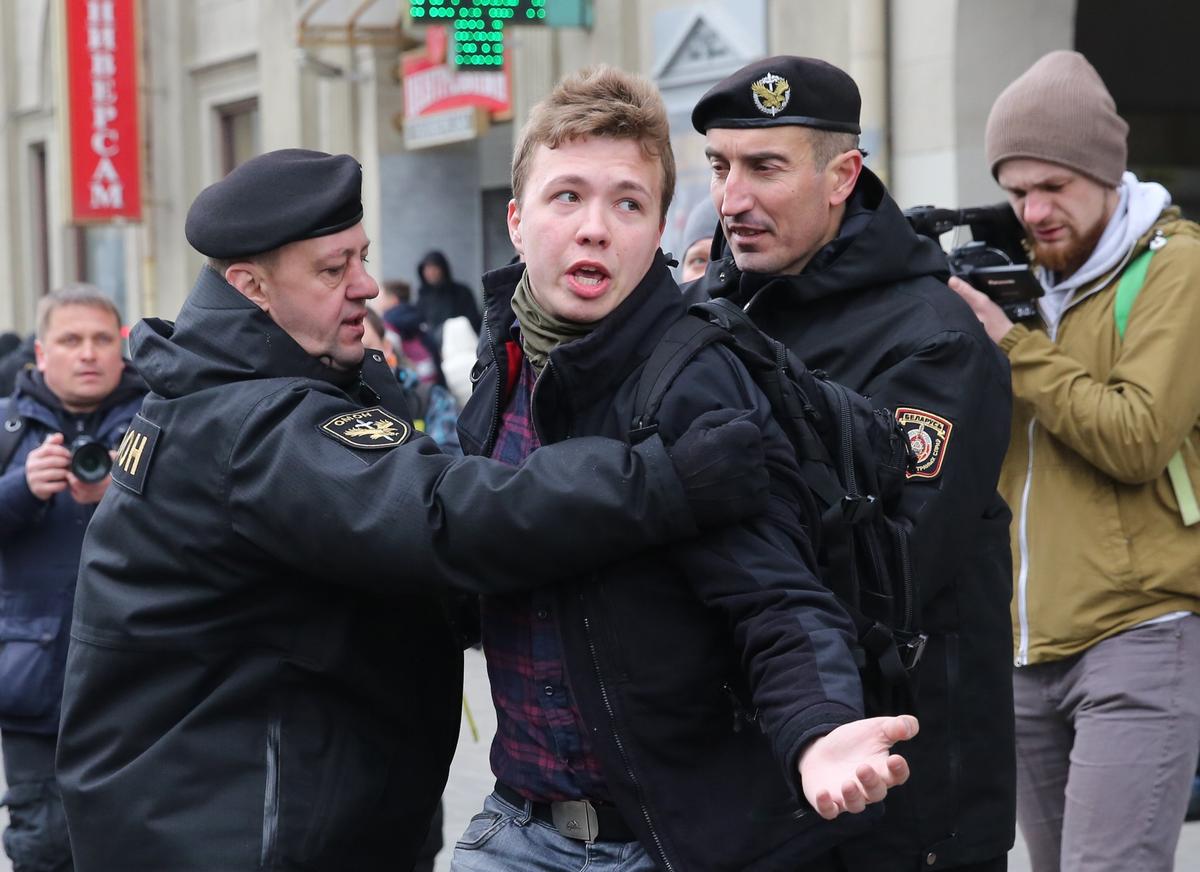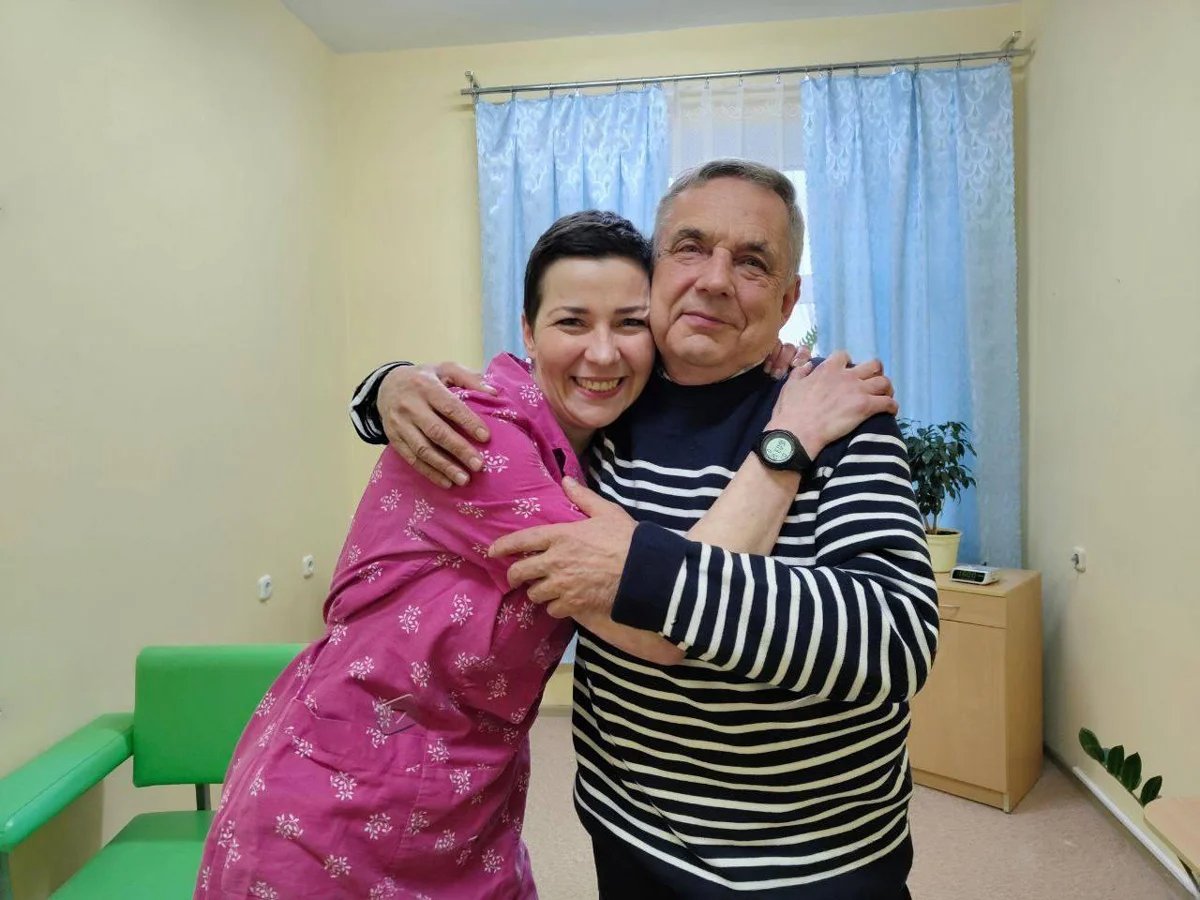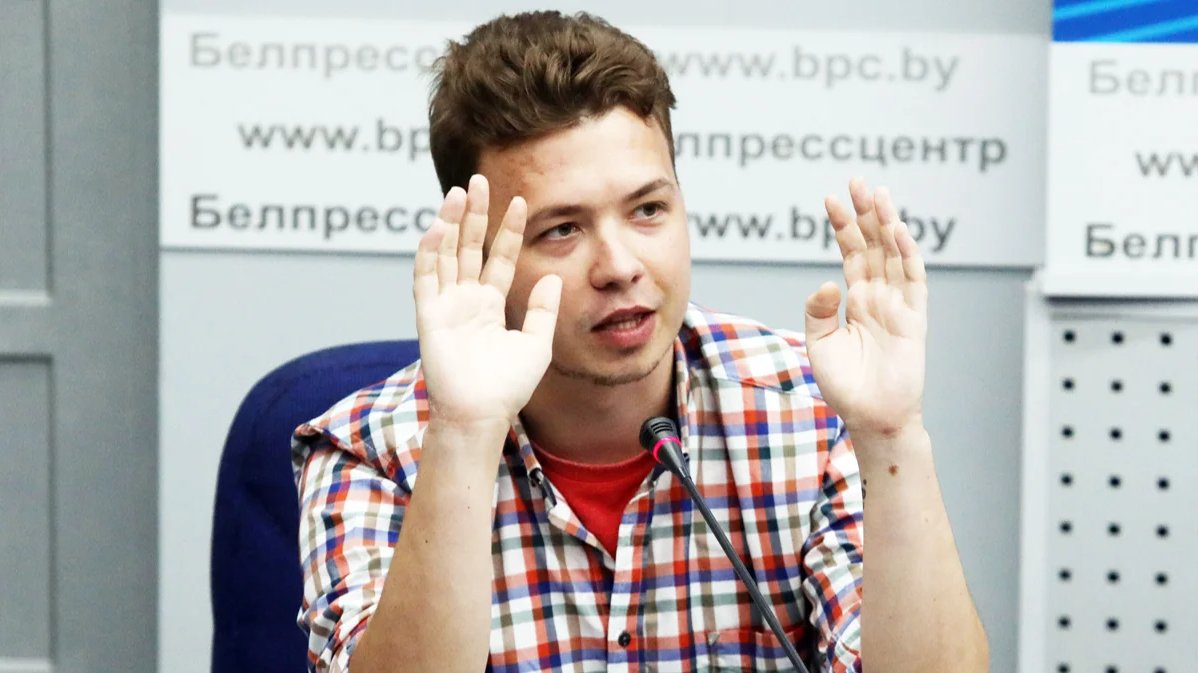Ever since he was paraded in front of the media by the Belarusian authorities just weeks after his arrest, it was clear that the Lukashenko regime planned to get the pound of flesh it believed was owed to it by Raman Pratasevich. After all, it would have been a criminal waste not to weaponise the former opposition journalist turned pro-regime propagandist after managing to bring him to heel in such a dramatic fashion.
After devising an audacious scheme to arrest the exiled Pratasevich that easily ranks alongside the KGB’s notorious poisoned umbrella assassination in terms of its sheer skullduggery, the Belarusian KGB somehow succeeded not only in breaking the one-time fierce critic of Belarusian dictator Alexander Lukashenko, but also in ensuring his future cooperation.
Down to Earth
The arrest of Pratasevich and his then girlfriend Sofia Sapega reads like something out of a Cold War spy novel. On 23 May 2021, as their Ryanair flight from Athens transited Belarusian airspace on its way to the Lithuanian capital Vilnius, it was forced to make an emergency landing by the country’s civil aviation authority, which claimed falsely to have received reports that a bomb was on board.

The Ryanair Boeing 737-800 that was forced to land in Minsk on false pretences finally touches down in Vilnius, Lithuania, 23 May 2021. Photo: EPA-EFE
However, once the aircraft was on the ground, both Pratasevich, then the editor-in-chief of Belarusian independent news outlet Nexta, and Sapega were detained by the security services. While the West’s response to Minsk abusing safety protocols to make two highly political arrests was to blacklist national airline Belavia from operating flights to Europe, there were few other consequences for the already isolated regime.
Less than a month later, however, Pratasevich reappeared in public alongside such heavy hitters as the commander of the country’s Air Force, the chairman of its Investigative Committee, and several other government big wigs to address a press conference held to present Minsk’s version of events.
Appearing cheerful and upbeat, Pratasevich assured reporters that nobody had laid a finger on him and that he had chosen to cooperate with the authorities of his own free will. He also said that he had recognised it was now up to him to make up for the damage he had caused to the country as editor-in-chief of Nexta, and even urged his parents to return to Belarus from abroad, assuring them that it would be absolutely safe to do so.
At the time it was hard to condemn Pratasevich’s actions too harshly given the methods used to force a confession, a statement of repentance and a pledge of future cooperation from suspects in Belarusian prisons. But just 10 days later, it emerged that Pratasevich and Sapega had been placed under house arrest together in a cottage provided by the security forces, which was, to say the least, a markedly different fate to that awaiting most political prisoners in the country.
Falling flat
That summer Pratasevich began giving interviews to regime propagandists in which he revealed with great relish which opposition figures in exile drank too much, lived beyond their means or took part in orgies. He dutifully denounced Nexta founder Stsiapan Putsila as a talking head and told propagandists wild tales of how the protests against Lukashenko’s stolen 2020 presidential election had been organised and financed by Western intelligence agencies, while praising the country’s dictator for his “balls of steel”.
While house arrest for most in Belarus means no contact with the outside world and zero access to technology, in August 2021, Pratasevich started his own Telegram news channel. This was the point at which the regime’s plans for him became clear — when a person under house arrest creates a Telegram channel, they are doing the bidding of those who arrested them.

Police officers detain Raman Pratasevich at an opposition rally in Minsk, Belarus, 26 March 2017. Photo: EPA / TATYANA ZENKOVICH
However, the vast majority of Belarusians, even those who might have been well-disposed towards him at some point, showed little interest in Pratasevich 2.0, and his “alternative” Telegram news channel currently has just 3,700 subscribers. The content he has produced seems unlikely to change that either, having made his first ever post on the channel about the impending release of political prisoners who remain in prison over three years later.
But even the few who continued to believe that Pratasevich was acting under duress were finally forced to accept that he wasn’t in May 2022, when he launched a scathing attack on his ex-girlfriend Sonya Sapega after she was sentenced to six years in a Belarusian prison for “inciting social discord”.
Pratasevich rushed to denounce her, stressing that Sapega had worked against the country’s security forces by administering the popular Black Book of Belarus Telegram channel, which doxed Belarusian law enforcement officers and government officials and encouraged its subscribers to spam them, before eventually being blocked by the authorities.
When it came to Pratasevich’s own court case, he was eventually sentenced to eight years in prison, but was never taken into custody, and received a presidential pardon just 10 days later.
By sharing the most scurrilous details of the personal lives of the political opposition in exile, Pratasevich crossed a line, and by the time of his attack on Sapega, people finally stopped thinking of him as a victim once and for all.
White elephant
Pratasevich was well on his way to becoming a white elephant for the Belarusian regime, which was quickly losing any hope of recouping the large financial and political investments they’d made in him, until one of Lukashenko’s geniuses came up with a viable final incarnation for him: the official whitewasher of the country’s fearsome penal system.
Pratasevich seemed to be the ideal candidate to humanise the brutal network of regime prisons into which much of the country’s opposition politicians have disappeared, many of whom have been kept in total isolation from the outside world for years, not even being allowed to write to their families.
On 12 November, photographs taken by Pratasevich of jailed opposition figure Maria Kalesnikava, from which nothing had been heard for over a year and a half, suddenly appeared online, appearing to scotch rumours that she was starving and weighed just 45 kilograms. Instead, everyone could see that she was alive and well and apparently enjoyed doing yoga in prison.
It was Pratasevich who took her father to the penal colony to see her, and who was allowed to take pictures of the two together, even shooting a video in which her father said that Kalesnikava had promised to consider asking Lukashenko for a pardon, the ultimate goal of the regime.

Maria Kalesnikava is visited by her father in prison, 12 November 2024. Photo: sprava_by / Telegram
Last week, Pratasevcih went to another prison, this time, to meet with Viktar Babaryka, a former presidential hopeful who also vanished into the Belarusian gulag in February 2023. As the doors swung open for Pratasevich to bring Babaryka news from his family and take a letter to them in return, it was plain for all to see that Babaryka was in good spirits, and bore no resemblance to a tortured prisoner.
Quite what the real story is with either political prisoner is, of course, not known, but the message being sent by these visits is clear: no lawyer, human rights activist, journalist or politician can do anything for those held in isolation by the regime, and submission to the authorities is the only route that will lead to their release.
There is no longer any debate in Belarus about whether Pratasevich is a victim. Even those initially most sympathetic to his fate changed their minds the moment his muck-raking on TV began. Just like the prisoners they have themselves been forced to become by Alexander Lukashenko’s three brutal decades of dictatorship, Belarusians may be sympathetic to fellow prisoners but will never be able to forgive a snitch.
Join us in rebuilding Novaya Gazeta Europe
The Russian government has banned independent media. We were forced to leave our country in order to keep doing our job, telling our readers about what is going on Russia, Ukraine and Europe.
We will continue fighting against warfare and dictatorship. We believe that freedom of speech is the most efficient antidote against tyranny. Support us financially to help us fight for peace and freedom.
By clicking the Support button, you agree to the processing of your personal data.
To cancel a regular donation, please write to [email protected]

